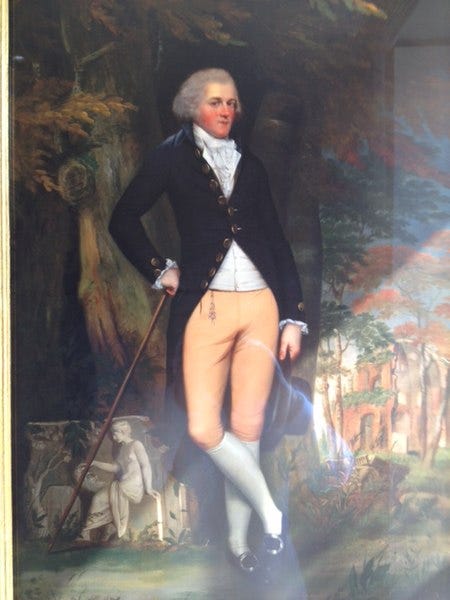Jane Austen’s family was full of remarkable characters—her supportive and spirited sister Cassandra, her clever clergyman father, her naval brothers who fought in the Napoleonic Wars—but one of the most intriguing figures in her life was her middle brother, Edward. Unlike his siblings, Edward was adopted by wealthy relatives, the Knights, and could expect a very different future than his siblings, one that would certainly inform Jane’s writing.
I’ve long been interested by Edward’s unusual place in the Austen family. He was born into the same modest, bookish household as Jane and her siblings, yet through adoption, he became the heir to more than one substantial estate, including the now-famous Chawton House. This transition—from the son of a country clergyman to a landed gentleman—shaped the course of his life in ways his brothers and sisters could scarcely imagine.
It got me thinking: What if Elizabeth Bennet had experienced something similar?
I’ve always loved exploring the nuances of family and fortune in the Regency era, and Edward’s story provided an excellent historical parallel. How does it shape a person to be loved and yet set apart? To feel both chosen and indebted? To exist between two worlds?
This ‘what if’ became the spark for my novel Drawing Mr. Darcy.
In my story, Elizabeth goes to live with her great aunt and uncle when she is ten. Edward Austen, later Edward Austen-Knight, didn’t leave home until he was eighteen. At that point, however, his life did diverge quite dramatically from that of his brothers and sisters—he spent two years on a grand tour of the continent, and when he returned, lived primarily with the Knights at Godmersham Park.
While several of Jane’s brothers took turns supporting the Austen women after the death of their father, it was Edward who was eventually able to provide a stable home for them, offering Jane, Cassandra, and their mother a home at Chawton Cottage on the estate of another home he inherited. Jane often walked up to the “great house” and had her own favorite sitting nook there.
In my novel, I wanted to capture the emotional complexity of such a situation. Elizabeth, like Edward, is taken in by a wealthy family and raised with privileges she would not otherwise have known, not the least of these an extensive education in subjects not considered proper for most women at the time, such as managing one’s fortune. But when she returns to Longbourn for a long visit when she is twenty, she struggles to find her place amongst her sisters again.
Edward Austen-Knight’s story is a reminder that family is not always defined by blood, and that fortune—both financial and emotional—can be as much a responsibility as it is a gift. It’s no wonder Jane Austen, who understood the intricacies of class and family so well, gave us characters like Fanny Price in Mansfield Park, whose upbringing among wealthier relations creates both opportunities and tensions.
As a writer, I love diving into these historical what-ifs. The story of Jane Austen’s middle brother, who lived between two identities, was the perfect inspiration for a novel about love, family, and the ties that shape us.
Have you ever been drawn to a historical figure whose life seemed stranger than fiction? Let me know in the comments!
Have you check out my shop? Show your love of Jane Austen Fan Fiction!





